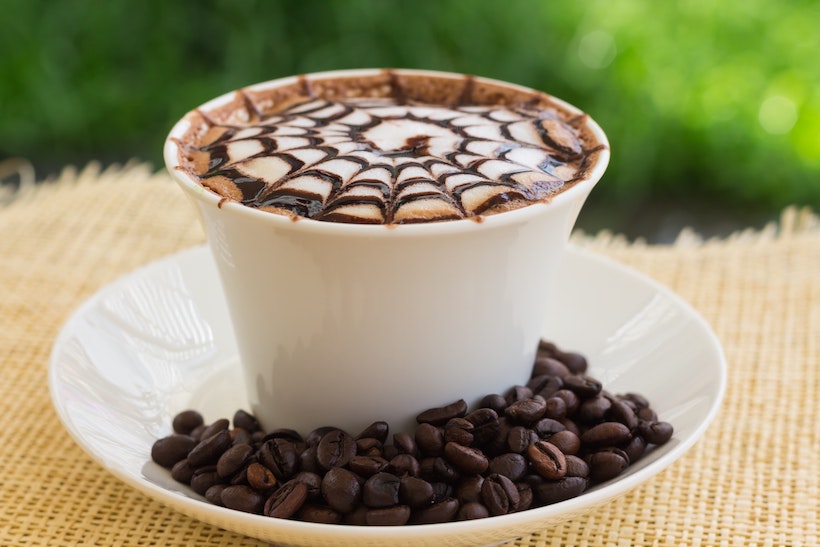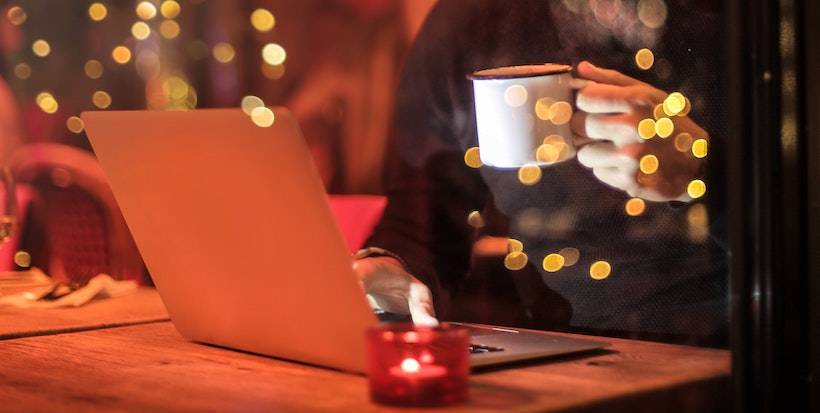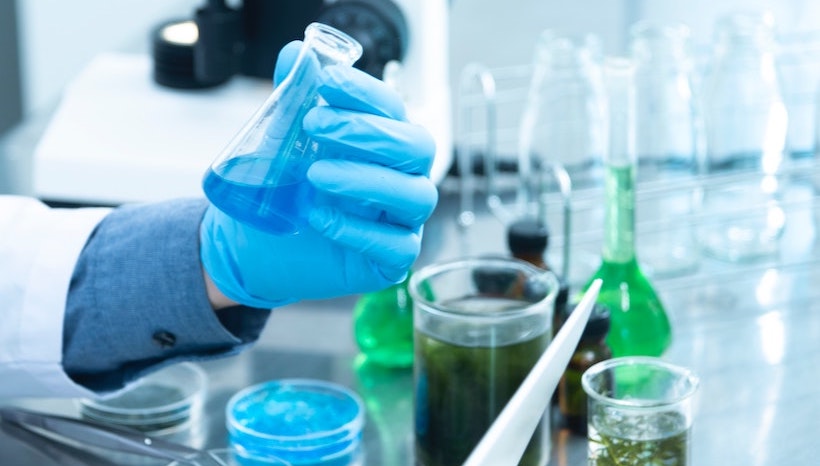It’s usually around 5:30 AM when my kids burst into our bedroom. (I’m not fun to interact with at 5:30 AM.)
Stumble to the kitchen.
Grind the beans.
Pour the water.
5-10 minutes later, giant coffee cup in hand, I’m a much more fun loving father.
But – what if that immediate cup of coffee isn’t the best choice? If wake-up sprinting to the coffee machine isn’t ideal, then when is the best time to drink coffee?

The best time to drink coffee if you have a normal sleep schedule is between 10 AM and 12 PM.
Instead of pounding a couple cups after you stumble out of bed, to maximize caffeine’s effects you need to wait a couple hours after you wake-up.
The reason? Peaks and valleys of a natural hormone known as cortisol.
Cortisol is a steroid hormone nicknamed the stress hormone. It’s the primary hormone released in response to stress (whether physical or mental) or low blood sugar.
When you have high levels of cortisol in your bloodstream, you’re very alert... but you can also can be irritable and anxious. Cortisol increases your heart rate and blood pressure. It slows wound healing. Chronic elevated levels can even cause osteoperosis, or bone thinning.
So, in short: it’s a necessary hormone. However, an excess of cortisol has negative effects that you really don’t want.
A circadian rhythm is any roughly day long repeatable cycle. When you or I talk about circadian rhythms, we usually mean a process in humans that happens every day.
Cortisol obeys its own circadian rhythm, mostly driven by your sleep/wake cycle and (naturally) the sun.
Because of this cycle, your natural baseline levels of cortisol are highest just as you wake up. You see smaller cortisol peaks again around 12:30 -1:30 PM then again around 5:30 PM - 6:30 PM.
If you have a regular sleep cycle, your lowest levels of cortisol are around midnight. This makes sense – you don't need to be very alert while sleeping!
Caffeine is a stimulant all on its own. That means, like cortisol, caffeine also can make you more alert and increase your heart rate and blood pressure.
As you probably guessed, caffeine also increases your cortisol levels.
So, if you drink caffeine when your cortisol levels are already high, you don't get as much of a response. You are already stimulated by cortisol – then you signal your body to produce even more.
Eventually, if you keep it up, you even become tolerant to caffeine. And if you're tolerant... caffeine has less effect (the horror!).
Late morning isn't the only good time for a Cup o' Joe. As you saw above, you have three natural peaks in your cortisol production.
If you're following the model (and you more or less have regular sleep patterns – more on that in a second), the ideal times for caffeine are:
* Well, if you want to stay awake. More on that in a second.
Cortisol is tied both to your sleep and wake cycle, as well as your exposure to light during the day. That means that most of this post's math is accurate for people who traditionally wake up in that 6:30 AM to 8:00 AM range.
But – what if you have a non-traditional sleep schedule? Good question.
What changes most with cortisol response to waking on non-traditional schedules is the intensity of the cortisol response.
Interestingly, there isn't a pronounced cortisol spike from naps, nor is there a massive difference if you wake up naturally versus with an alarm. If you're under other stress – for example, on the day of a big competition or event – you have a steeper and higher cortisol response.
In general, though, to maximize your enjoyment of caffeine's stimulant effects, wait at least an hour after you wake up (whenever that is). If you can make it for two hours, all the better!

For all the same reasons caffeine enhances your alertness and wakefulness, it works against sleep.
As your cortisol falls from its second peak between 5:30 PM and 6:30 PM, your body is starting its early preparation for nighttime sleep.
For most people, caffeine's adverse effects on sleep last upwards of 6 hours.
I suggest giving an even wider berth. If you go to bed at 10 or 11 PM, stay caffeine-free at least 8 hours before bedtime. If you take that advice to heart, that means put your mug down after 2 or 3 PM.
Caffeine isn't the only cause of insomnia. However, if you have issues falling and staying asleep, you need to look at – and improve – your sleep hygiene.
Sleep hygiene is all of your normal habits, rituals, and yes, food and drink preferences that affect your sleep.
If you are experiencing low quality sleep, first try things like:

So, we’ve established that caffeine makes it harder to fall asleep.
But let’s assume you are able to fall asleep while you’re still experiencing the effects of that espresso. What then?
Caffeine makes it hard to fall asleep. And even beyond that, caffeine reduces your total sleep time. One study puts that effect at around an hour of reduction.
You probably won't notice an hour lost after one night. However, over a long enough time you'll be more accident-prone, irritable, slower to react, and you might even experience mental lapses(!).
Second, caffeine directly disrupts stage I and stage II sleep.
All in all, caffeine makes it harder to fall asleep (it increases sleep latency), and you wake up more often and faster (it decreases sleep quality).
So again, it's probably best to avoid that cup after around 2 or 3 PM.

If you listen to Science, the best time to have that first cup of coffee is between 10 AM and Noon.
Around 2:00 PM is the best compromise between productivity and your later sleep if you need an afternoon cup.
Science aside, I'm not only trying to maximize my energy when I drink a cup. I look forward to the daily ritual of grinding beans, pouring water, and waiting on that first cup. (Not the 5:30 AM wake-up though)
Coffee is an experience above and beyond how it interacts with your cortisol. So – keep these best practices in mind. But do what makes you happiest; coffee is magic no matter when you take that first sip. And, it has plenty of beneficial health effects to boot – drink up.
When do you have your first cup of coffee? Will you be switching up your schedule?

Paste the code from the above box to share. Please include attribution to ManyEats.
Thank you to my friend Marcelle from Enlighten My Health for the excellent feedback.